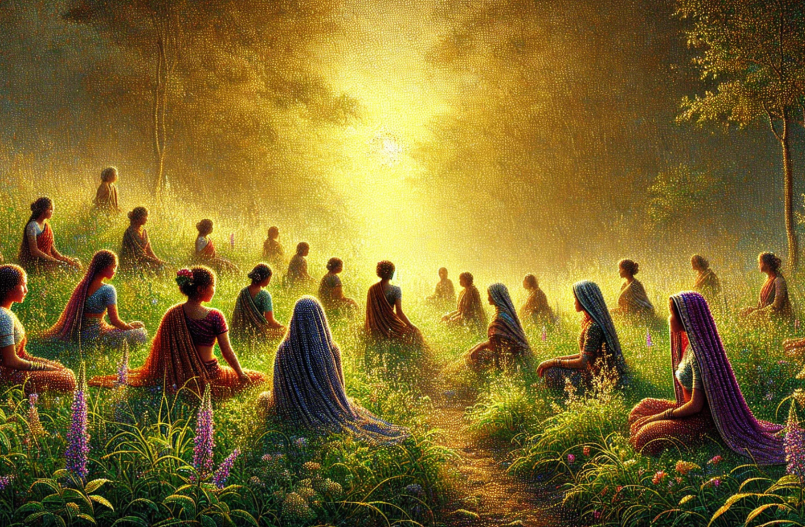The rich mythology of Arcadia features a pantheon of gods and goddesses who are integral to its history. From technological advancements to scientific breakthroughs, the gods have a significant presence in Arcadia’s lore. One notable event is Acadan, the sacred month of fasting and reflection, where the influence of the gods was especially profound.
The pantheon is divided into four groups: the Primordial Gods, the Elder Gods, the World Gods, and the Personal Gods. Each group had distinct responsibilities and influences that shaped the spiritual experiences of their followers during this significant time.
The Primordial Gods, Einvaldi and Annuler, are the foundational deities of Arcadia, representing existence and the void. During Acadan, their roles were deeply symbolic. They reminded the Lootians of the origins of life and their world, guiding them in their reflections on the nature of existence and the balance between life and death. The Primordial Gods helped the faithful understand the cyclical nature of creation and destruction, encouraging profound meditation and spiritual growth.
The Elder Gods, created by the Primordial Gods, governed the elemental and cosmic forces. These deities, including the Chief Deity Kempe, Fagra, Prevti, Udrar, Viss, and Talos, were responsible for maintaining cosmic order and harmony. During Acadan, they provided wisdom and strength to the Lootians, helping them navigate moral and ethical challenges. The Elder Gods inspired their followers to uphold justice, seek knowledge, and cultivate resilience. Their influence would ensure that societal values were reinforced and that individuals strived for personal and communal integrity.
The Elder Gods also played a pivotal role in fostering a sense of community in Arcadia. Through their teachings and the rituals performed in their honor, they emphasized the importance of unity, cooperation, and mutual support among the Lootians. Acts of charity and collective endeavors were often inspired by divine guidance, reinforcing the values of empathy and solidarity. By promoting these ideals, the Elder Gods ensured that the community thrived, with individuals working together for the common good and the betterment of society as a whole.
The World Gods would oversee the natural elements and forces that shaped Arcadia. This group includes Jord, Ver, Horis, Niefel, and Artimia, who control land, water, weather, death, and fire, respectively. During Acadan, the World Gods played a crucial role in guiding the Lootians’ interactions with the natural world. Their blessings were sought for favorable weather, abundant harvests, and protection from natural disasters. The World Gods ensured that the Lootians remained in harmony with the environment, promoting sustainable practices and a deep respect for nature. Throughout history, Acadan has been known to bring favorable weather conditions, including ample sunshine and heavy rains, ideal for crop growth. This period of divine favor ensured bountiful harvests, providing sustenance and prosperity for the community. The consistent and beneficial climate during Acadan further reinforces the Lootians’ reverence for the gods, who are believed to bless the land with their benevolence.
The Personal Gods had a direct and intimate impact on the daily lives of the Lootians during this sacred time. Created by the World Gods, this group includes deities like Jarn (Smithing), Esses (Youth), Drylaf (Animals), Vegg (Security), Theth (Technology), Tulsey (Home), Ak Chawu (Trade), and Tays (Agriculture). During Acadan, the Personal Gods were invoked for their specific blessings and guidance. They helped individuals in their crafts, protected families, ensured the prosperity of homes and businesses, and guided technological and agricultural advancements. The Personal Gods’ influence during Acadan fostered a sense of community, personal responsibility, and dedication to improving daily life.
During Acadan, the gods and goddesses of Arcadia played essential roles in guiding and protecting their followers. Each group of deities, with their unique responsibilities, contributed to the rich spiritual experience of this sacred month. By connecting with their chosen gods, the Lootians found strength, wisdom, and unity, reinforcing the cultural and spiritual fabric of their society.



